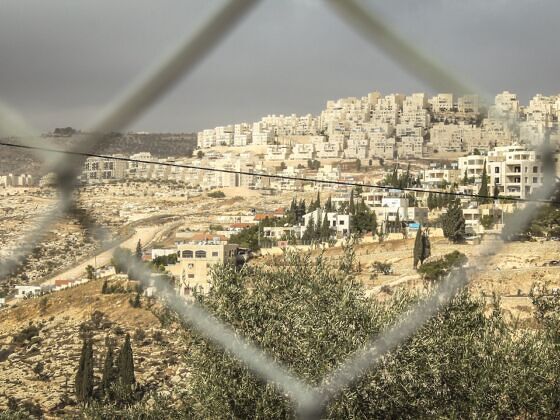“AN AMERICAN?”
Uzi Landau, Israeli Minister of Infrastructure, shook my hand on a gravel road overlooking the West Bank settlement of Kochav Ya’akov. He switched to English when my nationality was revealed, and grasped my hand a few seconds longer than necessary, looking me square in the eye. His grin was strained, twisted with a mixture of curiosity and annoyance. Then he dropped my hand and quipped, “You should find a better tour guide.”
